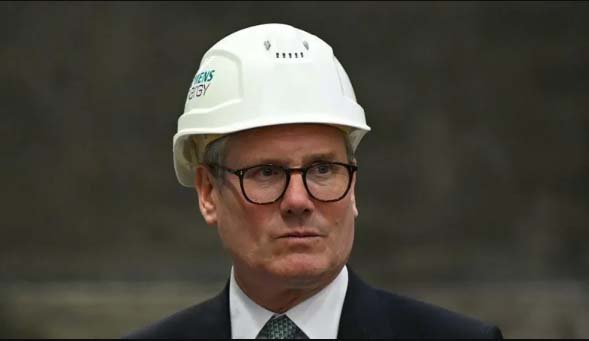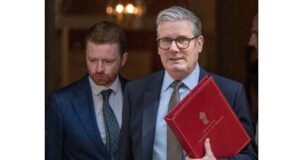
The political wing of the trade union movement has been elected to power for the first time in 14 years.
So many delegates at next week’s Trade Union Congress (TUC) in Brighton will blend celebration with anticipation.
But the Labour Party – set up by trade unions more than a century ago – now claims to be both the party of business and of the workers.
This has led to suspicion from some union leaders that Labour’s promised package of employment rights would be further watered down.
Well-placed union sources don’t believe these fears are justified.
The general secretary of the TUC has publicly hailed the forthcoming employment legislation as “the biggest upgrade of workers’ and union rights in a generation”.
Paul Nowak told the Labour List website that he had been at the TUC since the 1990s and “I can’t think of a more ambitious programme for the world of work”.
The 2016 Trade union Act will be repealed – scrapping turnout thresholds before industrial action be taken.
The more recent Minimum Service Level legislation – to ensure, for example, that a certain number of trains would run on strike days – is also headed for the dustbin of history.
But the TUC believes the measures are not anti-business or hugely radical.
Mr Nowak told the BBC: “Worker protections in this country are weak compared to many other leading economies.
“We urgently need our laws brought closer to the international mainstream. That’s why the government’s Employment Rights Bill is so important.”
Some unions are still sore that a number of previous Labour promises have already been caveated.
The proposed ban on all zero hours contracts had been diluted to banning “exploitative zero hours contacts” well before the election.
But union movement sources say there has been extensive and constructive engagement with the government over the reforms which will come before parliament next month and “no alarm bells are ringing”.
So when Sir Keir Starmer addresses the TUC next week, most delegates will be ready to praise, not bury, him.
But don’t expect a cosy era of corporatism to commence.
There will be flashpoints.
And with many new Labour MPs maintaining the discipline they exercised as candidates, it will be at the TUC that left, and centre left, voices of dissent and discomfort are most likely be heard.
 Weekly Bangla Mirror | Bangla Mirror, Bangladeshi news in UK, bangla mirror news
Weekly Bangla Mirror | Bangla Mirror, Bangladeshi news in UK, bangla mirror news







